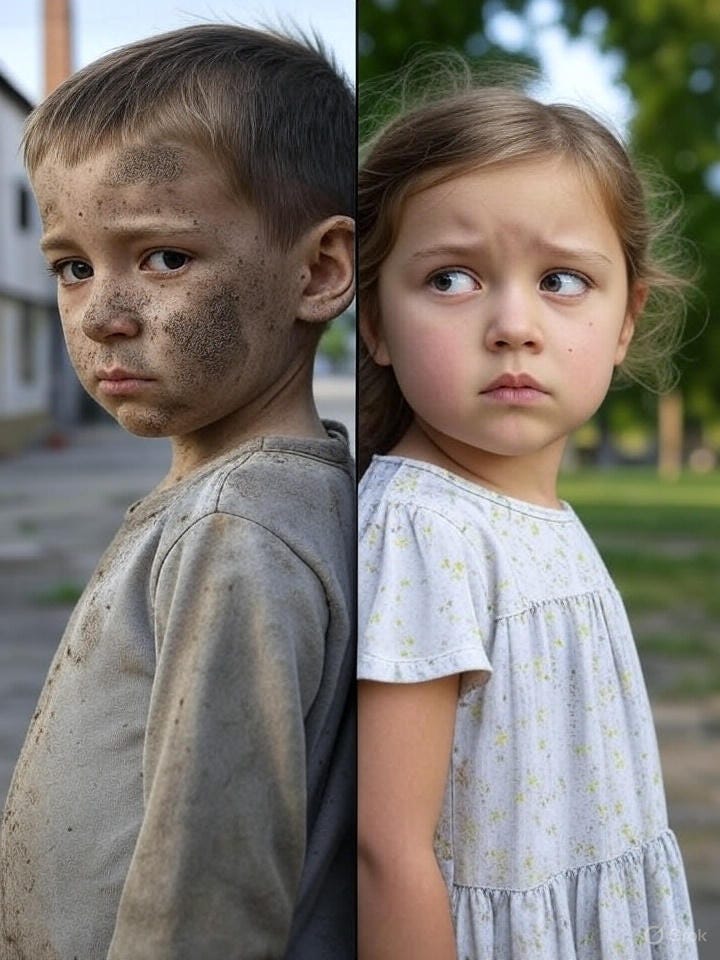Not too long ago, someone suggested a fine dining restaurant for a “long relaxed meal”. I declined and even gave a reason for doing so: “Based on my current cash flows, that is an extravagance I really cannot afford. Maybe another time.” To which she was conspicuously startled and blurted: “Wow! I am really surprised at how honest you are.”
It was my turn to be surprised.
What was “wow” about that? What was surprising about that? Was I expected to feel embarrassed or ashamed? Why would I not be honest? Should I have lied and made another excuse?
That incident triggered this post and got me digging.
Before we continue, a disclaimer: I am not glorifying poverty. Neither am I romanticising it. And by no stretch of imagination am I poor. So be open when reading this.
Why is shame such a dominant feature of poverty?
People would rather be known as ruthless, brutal, angry or bigoted than poor.
Hell, they would rather lie than admit that they cannot afford something.
I think it is because some narratives are deeply entrenched in our subconscious; such as…
“The poor are not only monetarily impoverished, but even morally. Look at the violence and abuse amongst them. They are the thieves.”
This justifies our disdain.“Money is the reward for those who work hard and are intelligent. If they don’t have money they are probably lazy and stupid.”
If we choose to acknowledge that it not a matter of skill, aptitude, grit or intelligence, but just woeful lack of resources, opportunities and network, we have transgressed rules of fairness. To admit that life is so brutally unfair is extremely bothersome and unnerving.“Those with money are worthy of my time and attention.”
No matter what lofty platitudes we dish out, we assign greater worth to those with money. This is probably why people hate admitting to a lack of resources.
Poverty is not simple. And if you have never experienced it, don’t even try the “I-know-what-you-mean” condescension.
“I’m hungry” uttered by a rich child is said with the complete assurance that something will be conjured and put in front of it.
“I’m hungry” uttered by a poor child comes with shame in asking knowing that it will make the parents unhappy, guilt for feeling hunger pangs that it has no control over, and utter hopelessness that its plea may be ignored.
Yet, both are hungry, innocent children who have done nothing to be blessed with wealth or cursed with poverty.
The burden of poverty may not be ours to bear, but why assign shame to those who have been dealt a bad hand? Why is their self-worth undermined? Why do we even take away their dignity, when sometimes it is the only thing they really own?
You think I am being too harsh?
Neuroscientists Lasana Harris and Susan Fiske did a study in 2006 at Princeton University. Volunteers’ brain scans were monitored when showed photographs of people belonging to different social groups. At the two ends of the spectrum were the overtly rich and the destitute.
When the volunteers looked at the pictures, Harris and Fiske studied the corresponding activity in the brain.
The brain scans revealed that the medial prefrontal cortex was activated when looking at pictures of the rich or middle class. This is when we relate to what is in front of us as fellow human beings, rather than an inanimate object. However, the brain scans did not have the same result when the poor and destitute were viewed. Instead the areas of the brain associated with disgust were activated – insula and amygdala. This is how we dehumanise others.
As I write this, I remember decades ago talking to someone my age who was living abroad. I asked him what was stark over here (India) compared to there (US). I have forgotten his name and face, but I will never forget what he said. “Well, what I hate about India is that the poor are so in your face. There, the poor live in separate neighbourhoods and you don’t have to see their poverty. I hate having to see it all the time, everywhere.”
What is my point?
This post is not about glorifying or romanticising poverty. Neither is it about capitalism or socialism. I am not even suggesting that you help the poor.
What I am putting forth is the need for each of us to introspect and reevaluate how we assign value/worth to a fellow human being. Is money, or the lack of it, the sole criteria?





Like!
Rocked again.
A stark reminder to visit my belief systems... well said